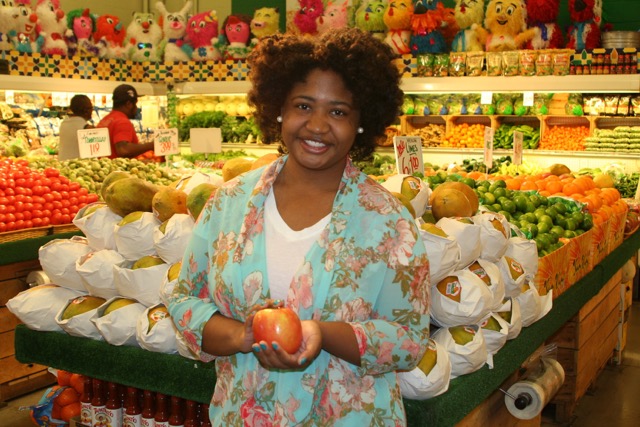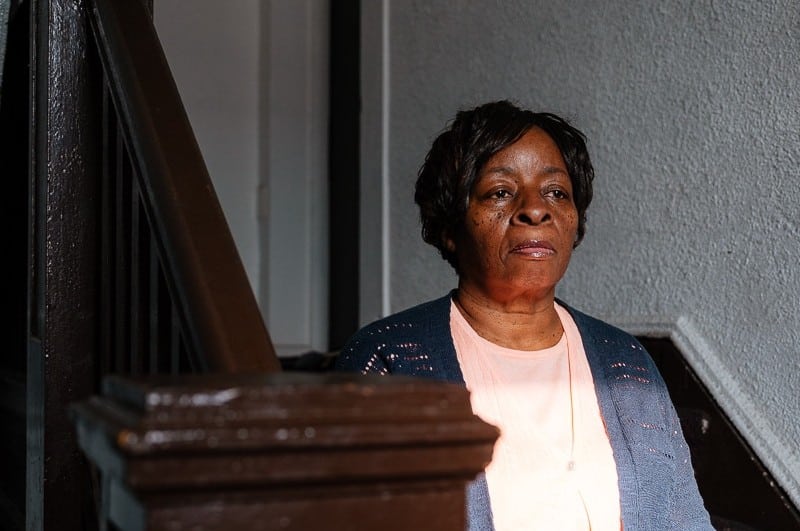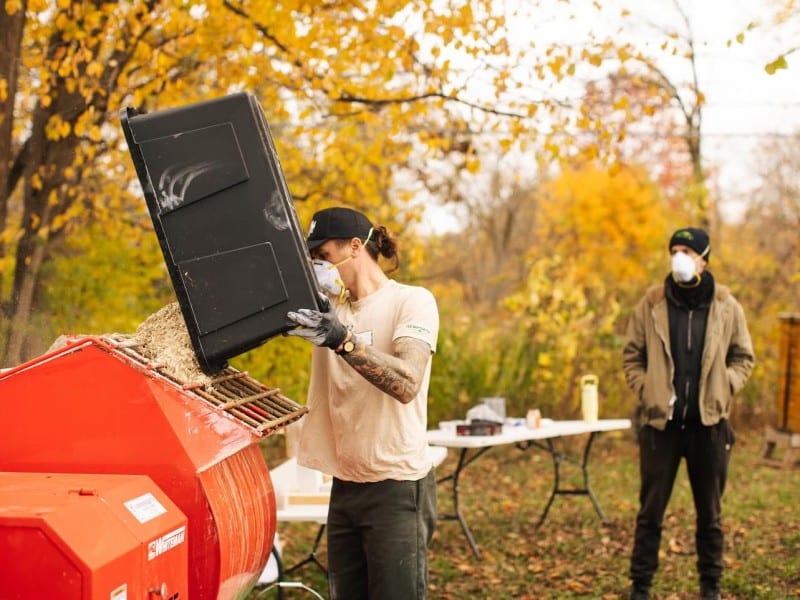Olivia Henry, under-30 leader at the Detroit Food Policy Council, just wants to help people
Henry, 26, recently celebrated her one year anniversary as youth programs coordinator for Detroit Food Policy Council. But she's been involved in public service her whole life.

This is a spotlight in our emerging leaders series where we profile under-30 change makers doing great work with youth.
Olivia Henry has been involved in public service her whole life.
She grew up helping out local food banks and pantries, was in her church youth group, and is now a counselor there. She helped found Mission 31, a mentorship nonprofit that prepares young women from grades six through 12 for adulthood. Born and raised in North Rosedale Park, Henry would go on to volunteer with her sorority at Grand Valley State University, where she graduated with a degree in public and nonprofit administration in 2013.
So it’s really no wonder she’s pursued a career in public service.
“Just helping people, it comes naturally to my parents, and they passed it on to me and my sister,” says Henry. “It’s something we like doing. It’s fulfilling.”
This May, Henry celebrated her one year anniversary as youth programs coordinator for Detroit Food Policy Council, where she also handles social media duties. She turns 26 in June.
The Detroit Food Policy Council (DFPC) operates out of an office in the Julian C. Madison building in downtown Detroit, though the nonprofit casts its reach far beyond the confines of Washington Boulevard. DFPC takes a community-led approach to shaping Detroit’s food system, using policy to improve residents’ access to quality food. A 21-member council consists of a range of key influencers, including representatives from the agriculture, education, and city government sectors.
As youth programs coordinator, Henry runs an eight-month-long leadership development program. Beginning in July, the program exposes youth to food systems philosophies and activities through a series of field trips and lessons, culminating in an annual youth summit at University of Detroit-Mercy. At the summit, Henry’s students teach workshops to 200 middle and high school students throughout Detroit. Henry also coordinates volunteer work, resume- and CV-writing workshops, and career days through the program.
“Eventually the leaders that are stepping up now are going to get older,” says Henry. “So you need to mold someone to be there, to have the knowledge and exposure of what’s right and wrong. … You have to reach to the youth, in some form.”
Henry believes that it’s important to teach nutrition to people at a young age, even performing a healthy foods taste test with three-year-olds at a nursery.
In learning about Detroit’s food system, Henry has come away with a few surprises. She notes the city’s acclaimed urban agriculture industry, which not only improves access to healthy eating options, but also offers job training, employment, and economic development opportunities. She also thinks Detroit Public Schools has gotten better about nutrition. Schools have eliminated many vending machines, installed salad bars, and provided free breakfast and lunch for all Detroit students under the USDA’s Community Eligibility Option Program, which provides free meals for all children in high poverty areas, without excessive paperwork for the schools.
Still, there’s a lot of work to be done to improve Detroiters’ access to healthy and quality eating options. Such a bare necessity should be a right, says Henry, and one that she’s dedicated to as she begins her second year at Detroit Food Policy Council.
“I love what we do. We’re trying to get our name out there even more because we’re here for the whole city of Detroit,” says Henry. “Every single person eats, and we can impact that, positively.”
Model D asked Olivia Henry about her thoughts on Detroit Food Policy Council and the city itself.
Q: What drew you to this profession rather than a for-profit business career?
A: My college experiences. I’ve volunteered so much as a youth and I want to help people—that was always my goal. I originally wanted to be a nurse. But in nonprofit, you touch so many lives in so many different ways. There are so many resources out here, there’s money out here. But not everybody is connected to it in the ways that we all should be.
I just want to help people bring each other up. And to be self-sustaining. Because, in the end, that’s the goal: to take care of yourself and your family and your loved ones, and your community in general.
Q: How does your own young age benefit working with youth?
A: I love working with youth. I can relate to them, more so than older people. But at the same time, I’m slightly older than them and I have knowledge to share. I like that I can put it in their terms and have an understanding. We’ll laugh and goof off when I take them out to lunch on a field trip. But at the same time they’ll ask me for advice on school, relationships, friends—any of that. You need to be able to relate to each other.
I like seeing the growth in youth, because I know at one point I was there and it wasn’t that long ago so I can really go back and say, “Wow, you’re really farther along than I was at that age. Keep doing this.”
Q: How does your work address issues of equity?
A: When I first got here, I had to really learn the difference between equity and equality. Because that’s one of the things that our organization is big on: equity. Of course we want equality, but if your starting points are completely different, how are you going to get to equality? So that’s our starting point with every discussion we have, with every program, every event. How is equity going to be part of it, so that we’re having a positive impact that is going to make a difference in the long run.
This article is part of Michigan Nightlight, a series of stories about the programs and people that positively impact the lives of Michigan kids. It is made possible with funding from the W.K. Kellogg Foundation. Read more in the series here.




